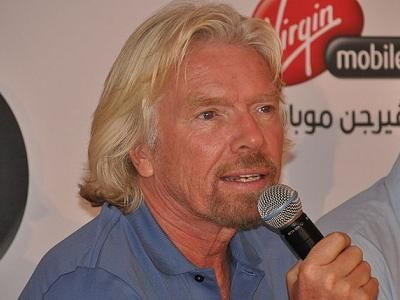The B-Team business leaders call for ‘net-zero emissions target’ by 2050
Business coalition including Unilever and the Virgin Group urges world leaders to adopt ambitious climate commitments

Business leaders from some of the world’s largest companies, as part of The B Team coalition, called on governments and businesses on Tuesday to aim for net-zero greenhouse gas emissions by 2050.
The ‘Net-Zero by 2050’ target being adopted by leading firms including Unilever and the Virgin Group urges world leaders to adopt ambitious climate commitments as part of the political process in the build up to the United Nations Climate Change Conference in Paris later this year.
The ‘Net-Zero by 2050’ global target is based on an assessment of the latest scientific research, business risks and the business case for preventing an average global temperature increase of 2°C above pre-industrial times that scientists say would cause catastrophic impacts of climate change.
Several global companies associated with The B Team are leading the way by announcing their aspirations to achieve ‘Net-Zero by 2050’ including Chinese construction company Broad Group, African telecommunications group Econet, Brazilian cosmetics manufacturer Natura, consumer goods giant Unilever and international investment group Virgin.
Econet, Kering, Natura and Unilever have also shown their support for net-zero through specific climate commitments as part of the We Mean Business campaign for climate action.
The commitments represent some of the most important practical steps to get to ‘Net-Zero by 2050’ and over 180 companies have already made over 300 commitments as part of the campaign.
Key B-Team leader Paul Polman, who is CEO of Unilever, and Chair of the World Business Council for Sustainable Development (WBCSD) said: “Decisive action on climate change is a moral and business imperative. Momentum is now building for a new direction; a new model of development that delivers a sharp reduction in emissions and a concerted effort to eliminate poverty in all its forms… The climate summit in Paris will be the first test of our ability to implement the ambitious Sustainable Development Goal framework that will be adopted in New York this week. An ambitious long-term goal — net-zero emissions by 2050 — would send a signal that the world is serious about delivering climate security and global development for all.”
Sir Richard Branson, founder of the Virgin Group, added: “We now have the opportunity to make a positive difference for business, people and the planet. Taking bold climate action now has the potential to unleash the full power of business and lift millions of people out of poverty. We’re the first generation to recognise this and the last generation that will have this opportunity. It’s time for all of us to join forces and drive the transition to a thriving net-zero GHG emissions economy by 2050.”
The adoption of the Global Goals later this week, in addition to a binding and actionable global climate agreement that stakeholders across the world are pushing for at the 21st Session to the Conference of the Parties (COP21) in December, highlight that 2015 is a critical year of opportunity for government and business to develop specific frameworks and long-term targets to address a number of the world’s most pressing challenges.
A global commitment to net-zero greenhouse gas emissions by 2050 from governments would provide a strong signal to businesses and investors to help them plan for and deliver a low-carbon future.
The B Team is now urging other business leaders to join the growing movement to create a low-carbon economy through actively adapting their business strategies in line with this objective and setting clear targets and commitments.






